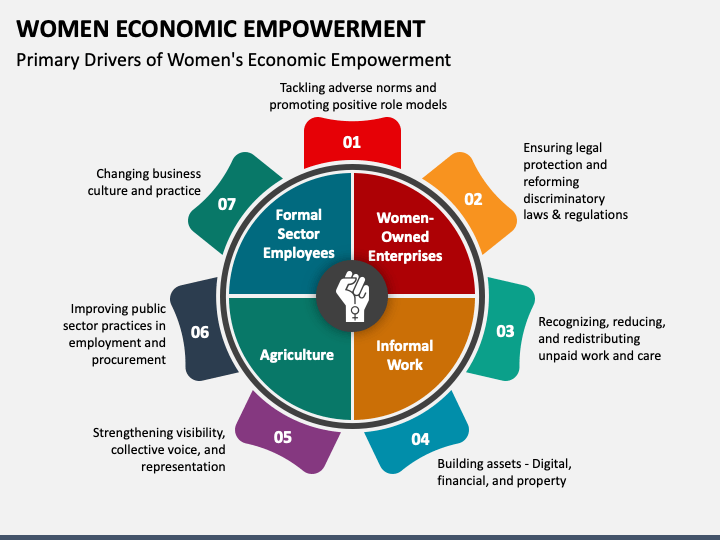Unlocking Potential: A Comprehensive Exploration of Women’s Empowerment
Related Articles: Unlocking Potential: A Comprehensive Exploration of Women’s Empowerment
Introduction
In this auspicious occasion, we are delighted to delve into the intriguing topic related to Unlocking Potential: A Comprehensive Exploration of Women’s Empowerment. Let’s weave interesting information and offer fresh perspectives to the readers.
Table of Content
Unlocking Potential: A Comprehensive Exploration of Women’s Empowerment

Women’s empowerment is a multifaceted concept that encompasses the ability of women to exercise their agency, make choices, and participate fully in all aspects of life, free from discrimination and limitations imposed by gender norms. It is a fundamental human right and a cornerstone of a just and equitable society. This exploration delves into the various dimensions of women’s empowerment, examining its significance, challenges, and progress across different domains.
Understanding the Multifaceted Nature of Empowerment
Women’s empowerment is not a singular achievement but rather a continuous process that requires a holistic approach. It encompasses several key dimensions:
- Economic Empowerment: This involves providing women with equal opportunities in education, employment, and financial resources. It includes access to training, credit, and markets, enabling women to participate in economic activities and achieve financial independence.
- Political Empowerment: This refers to women’s participation in political processes, including voting, holding office, and influencing policy decisions. It ensures their voices are heard and their interests are represented in shaping the political landscape.
- Social Empowerment: This involves challenging gender norms and stereotypes that limit women’s roles and opportunities. It promotes gender equality in education, healthcare, and social spaces, fostering a culture of respect and dignity for all genders.
- Legal Empowerment: This entails ensuring women’s access to justice and protection under the law. It includes equal rights to inheritance, property ownership, and legal representation, safeguarding women from discrimination and violence.
- Health Empowerment: This focuses on women’s access to quality healthcare services, including reproductive health care, maternal health services, and prevention and treatment of gender-based violence. It promotes women’s well-being and agency over their bodies and health.
The Significance of Empowering Women
Empowering women is not only a matter of justice and equality; it is a strategic imperative for societal progress. Here’s why:
- Economic Growth: Studies consistently demonstrate that empowering women leads to economic growth. When women have equal opportunities, they contribute significantly to the workforce, boosting productivity and innovation.
- Improved Health Outcomes: Empowering women leads to better health outcomes for both women and their families. Increased access to healthcare, education, and economic resources contributes to improved maternal and child health, reduced poverty, and overall well-being.
- Reduced Poverty: Empowering women is essential for poverty reduction. When women have access to education, employment, and financial resources, they are better equipped to lift themselves and their families out of poverty.
- Social Progress: Empowering women contributes to social progress by challenging gender norms and stereotypes. It fosters a more inclusive and equitable society where everyone has the opportunity to thrive.
- Peace and Security: Empowering women is crucial for achieving peace and security. Women play vital roles in conflict prevention, peacebuilding, and promoting reconciliation.
Challenges and Barriers to Empowerment
Despite significant progress in some areas, women continue to face numerous challenges that hinder their empowerment:
- Gender-Based Violence: Violence against women, including domestic violence, sexual assault, and trafficking, remains a significant obstacle to women’s empowerment. It undermines their safety, security, and well-being, limiting their ability to participate fully in society.
- Discrimination and Prejudice: Women continue to face discrimination and prejudice in various spheres of life, including education, employment, and healthcare. This limits their opportunities and perpetuates inequality.
- Cultural and Traditional Norms: Traditional norms and cultural beliefs can restrict women’s roles and opportunities, limiting their agency and decision-making power.
- Lack of Access to Education: Access to quality education is crucial for women’s empowerment. However, many girls around the world face barriers to education, including poverty, child marriage, and cultural norms.
- Limited Access to Healthcare: Women often lack access to quality healthcare services, particularly in rural and marginalized communities. This can have severe consequences for their health and well-being.
- Political Underrepresentation: Women are underrepresented in political leadership positions worldwide. This limits their ability to influence policy decisions and advocate for their interests.
Strategies for Advancing Women’s Empowerment
Addressing these challenges requires a multi-pronged approach that involves:
- Legislation and Policy: Enacting and enforcing laws and policies that promote gender equality and protect women’s rights is essential. This includes laws against discrimination, violence, and child marriage.
- Education and Awareness Raising: Raising awareness about gender equality and challenging gender stereotypes through education and public campaigns is crucial. This helps to change attitudes and behaviors that perpetuate inequality.
- Economic Empowerment Programs: Providing women with access to education, training, and financial resources is critical for their economic empowerment. This includes programs that support women-owned businesses, provide microfinance, and promote equal pay.
- Political Participation: Encouraging women’s participation in political processes, including voting, holding office, and influencing policy decisions, is essential for ensuring their voices are heard.
- Healthcare Access: Improving women’s access to quality healthcare services, including reproductive health care, maternal health services, and prevention and treatment of gender-based violence, is crucial for their well-being.
- Community Mobilization: Engaging communities and empowering women at the local level is essential for achieving sustainable change. This involves working with community leaders, organizations, and women themselves to address local challenges and promote women’s rights.
FAQs about Women’s Empowerment
Q: What are the key benefits of empowering women?
A: Empowering women leads to economic growth, improved health outcomes, reduced poverty, social progress, and peace and security.
Q: What are some of the most significant challenges facing women’s empowerment?
A: Challenges include gender-based violence, discrimination, cultural norms, lack of access to education and healthcare, and political underrepresentation.
Q: How can we effectively empower women?
A: Strategies include legislation and policy changes, education and awareness raising, economic empowerment programs, promoting political participation, improving healthcare access, and community mobilization.
Q: Why is it important to address the issue of gender-based violence?
A: Gender-based violence is a serious human rights violation that undermines women’s safety, security, and well-being, limiting their ability to participate fully in society.
Q: What role does education play in women’s empowerment?
A: Education is crucial for women’s empowerment as it provides them with knowledge, skills, and opportunities to achieve their full potential and participate in society on an equal footing.
Tips for Promoting Women’s Empowerment
- Challenge Gender Stereotypes: Be mindful of gender stereotypes in your own life and challenge them when you see them.
- Support Women-Led Initiatives: Support organizations and initiatives that empower women.
- Advocate for Women’s Rights: Speak out against discrimination and violence against women.
- Promote Gender Equality in Your Workplace: Encourage your workplace to adopt policies that promote gender equality.
- Educate Yourself and Others: Learn about the challenges facing women and share your knowledge with others.
Conclusion
Empowering women is not just a moral imperative but a strategic necessity for a just, equitable, and prosperous world. By addressing the challenges and implementing effective strategies, we can unlock the full potential of women and create a society where everyone has the opportunity to thrive.







Closure
Thus, we hope this article has provided valuable insights into Unlocking Potential: A Comprehensive Exploration of Women’s Empowerment. We appreciate your attention to our article. See you in our next article!
